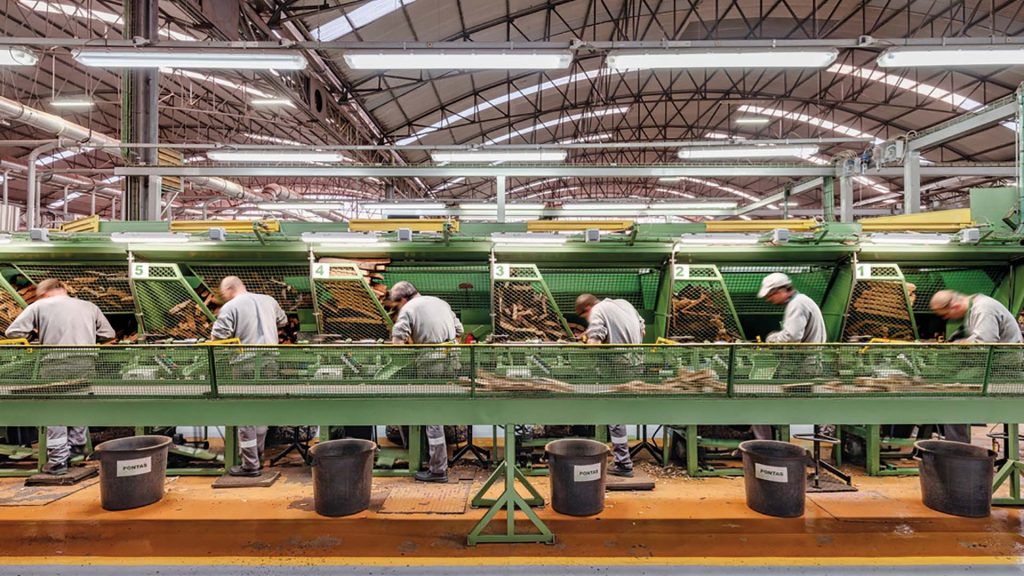
Inspired by the admonition “By eating, we digest territories,” the Spanish Pavilion at the 18th Biennale of Architecture presents a focus on the architectures that sustain the world, from our kitchens in households to the large functional areas that nourish our cities.
Curated by Eduardo Castillo-Vinuesa and Manuel Ocaña, the Spanish project explores the agro-architectural context in Spain, extending the investigation to the past and present of global food systems to imagine a future in which human sustenance does not come at the expense of the planet. The research takes the form of a collective research platform that will remain active from July until the end of the Biennale, spanning five months during which a team of researchers will spearhead dynamic initiatives aimed at proposing innovative solutions. The program is supported by the European Climate Foundation (ECF) and was designed in collaboration with several leading Spanish universities (ETSAM-UPM, EAT-UCLM, ETSAB-UPC) as well as Ca’ Foscari University and IUAV of Venice. The collaboration also extends to TBA21, the foundation for the promotion of contemporary art created in 2002 by the philanthropist and collector, Francesca Thyssen-Bornemisza, a reality that has been expanding its network for years with activities in Venice, particularly at the headquarters of Ocean Space.
Each week, various experts from different disciplines – scientists, environmental historians, policymakers, artists, architects, chefs, and farmers – will join the research unit to create a public laboratory of ideas. This collaborative space will allow them to share knowledge and experiences to analyze the intricate connections that shape our way of eating. The program will revolve around conferences, discussions, workshops, excursions to Venice and the surrounding regions of northern Italy, as well as visits to laboratories, gardens, institutions, and other public places. Among the notable participants expected to take part in the program are Marina Otero Verzier – a prominent figure in the field of urban design; Marta de Marchi – a committed researcher exploring the connections between food, culture, and society; Manijeh Verghese – an attentive architect with a focus on sustainable practices; Elena Longhin – a landscape planner; Roberta Raffaetà – a researcher in the field of socio-cultural anthropology; Barenas Collective – a group of artists and designers attentive to the relationship between art, food, and the environment; Nomeda and Gediminas Urbonas – active participants in collaborative interventions between different professionals in the lagoon area; Jan Boelen – a curator and designer known for his commitment to promoting public participation and social innovation; Laura Tripaldi – an expert in materials science and nanotechnology; Territorial Agency – a design studio that explores the interactions between territory, environment, and society. These diverse experts will contribute their unique perspectives and insights, fostering a comprehensive understanding of the complex dynamics between food, culture, and the environment. Through their collaboration, they aim to envision innovative and sustainable approaches to our global food systems.
The program will culminate in the creation of the Future Foodscapes Compendium, a web platform that will serve as a repository for a collection of tools, operational resources, and case studies showcasing innovative solutions for a more equitable and resilient future food system. As the program approaches its conclusion, the most promising case studies will enter the implementation phase, where they will be prototyped in collaboration with relevant institutions and stakeholders. The collaborative platform, the Future Foodscapes Compendium, will act as a valuable resource for individuals and organizations seeking transformative ideas and practical solutions to shape a more sustainable and inclusive food system. By providing a space for knowledge-sharing and partnership-building, the program aims to foster meaningful change in the way we produce, distribute, and consume food. The implementation of promising case studies will further contribute to creating a positive impact on food systems, with the involvement and support of key stakeholders playing a crucial role in driving these ideas forward.
Furthermore, in the autumn, at Ocean Space and other venues in Venice, the Spanish participating universities will each curate a week-long collaborative event in partnership with TBA21. This event will include an experimental symposium organized by ETSAM-UPM in collaboration with the New European Bauhaus initiative.